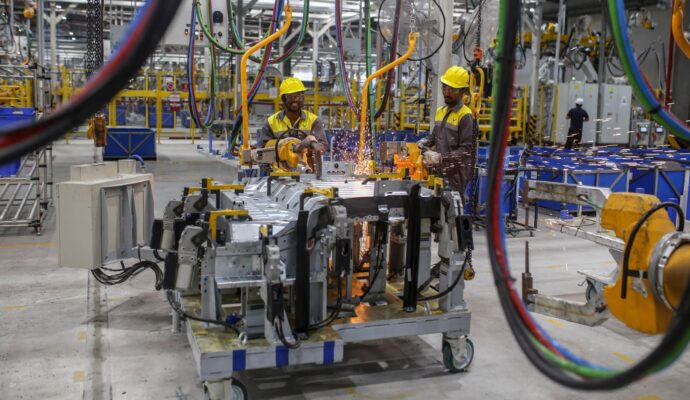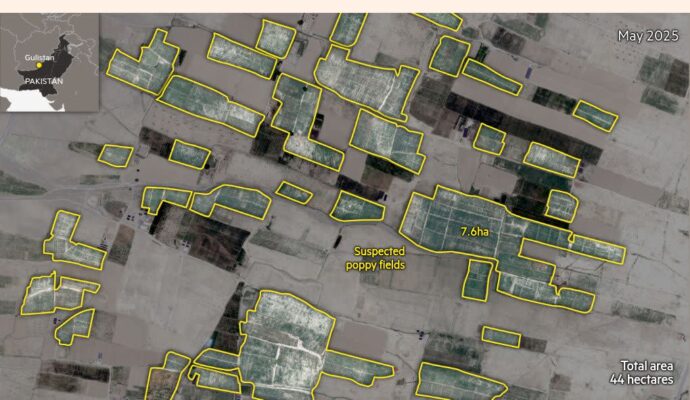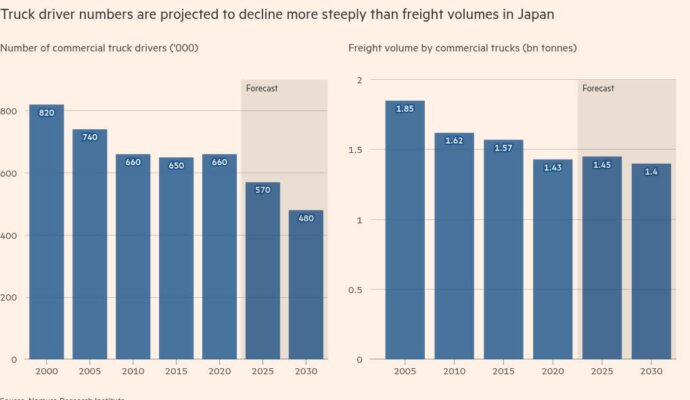Unlock the Editor’s Digest for free
Roula Khalaf, Editor of the FT, selects her favourite stories in this weekly newsletter.
Taiwanese voters rejected an attempt to unseat nearly half of the opposition Kuomintang’s lawmakers in mass recall elections on Saturday. The result threatens to deepen political paralysis in a country striving to strengthen its defences against China.
None of the unprecedented recall petitions against 24 of the KMT’s 52 legislators gained a majority, according to preliminary election commission figures.
The results marked a stark defeat for an activist movement that had accused the KMT of undermining Taiwan’s sovereignty and democracy to help China seize the country.
Seven more KMT lawmakers face recall votes on August 23, but observers in both the opposition and ruling Democratic Progressive party said the chances of voters backing those recall motions were slim.
“This has to be a wake-up call for the Democratic Progressive party and President Lai Ching-te,” said Lev Nachman, a political scientist at National Taiwan University. “Accusing everyone of being a Chinese Communist party agent is not a winning strategy.”
He added that the recall campaign had demonstrated “how incredibly partisan and polarised Taiwan has become, and it’s not working”.
Since May last year, the KMT has used the legislative majority it holds with a smaller opposition party to obstruct Lai’s minority government.
It passed legislative amendments that would have expanded parliament’s powers at the expense of the executive and judiciary. After most of those changes were rejected by the constitutional court, the opposition paralysed the court by raising the quorum it needed for rulings. It then blocked all judges nominated by the president that were needed to achieve that quorum. Several KMT politicians have also visited China and parroted Communist party rhetoric.
Recall campaigners and many DPP politicians have labelled such behaviour as “collusion” with a regime that explicitly aims to annex Taiwan.
While the recall petitions were launched by a coalition of civic groups and many DPP politicians were sceptical about their chances of success, the ruling party eventually backed the campaign.
Analysts said activists’ and DPP politicians’ toxic rhetoric triggered a backlash not only from the KMT’s core supporters but among many “middle voters” too who have weak or no party alignment.
In a controversial speech last month, Lai said Taiwan had to use rounds of elections and recalls to forge national unity, and added that “vote after vote, like forging iron,[ . . . ] remove impurities”.
The phrase was widely understood as suggesting the KMT or people who embrace a Chinese identity should be purged from Taiwan’s society. The KMT denounced Lai as a “dictator”.
After Saturday’s recall vote, the KMT said: “At a time when Taiwan faces serious and complex challenges, including national defence, economic resilience, energy stability and citizens’ livelihoods, the government’s focus on divisive political manoeuvres has drawn widespread disapproval.”
It urged observers not to misconstrue the results as a signal on policy towards China or interpret it through the lens of “pro-China” or “pro-Taiwan” alignment.
“Rather, it reflects the strength and vitality of Taiwan’s democratic accountability mechanisms,” the party said.


